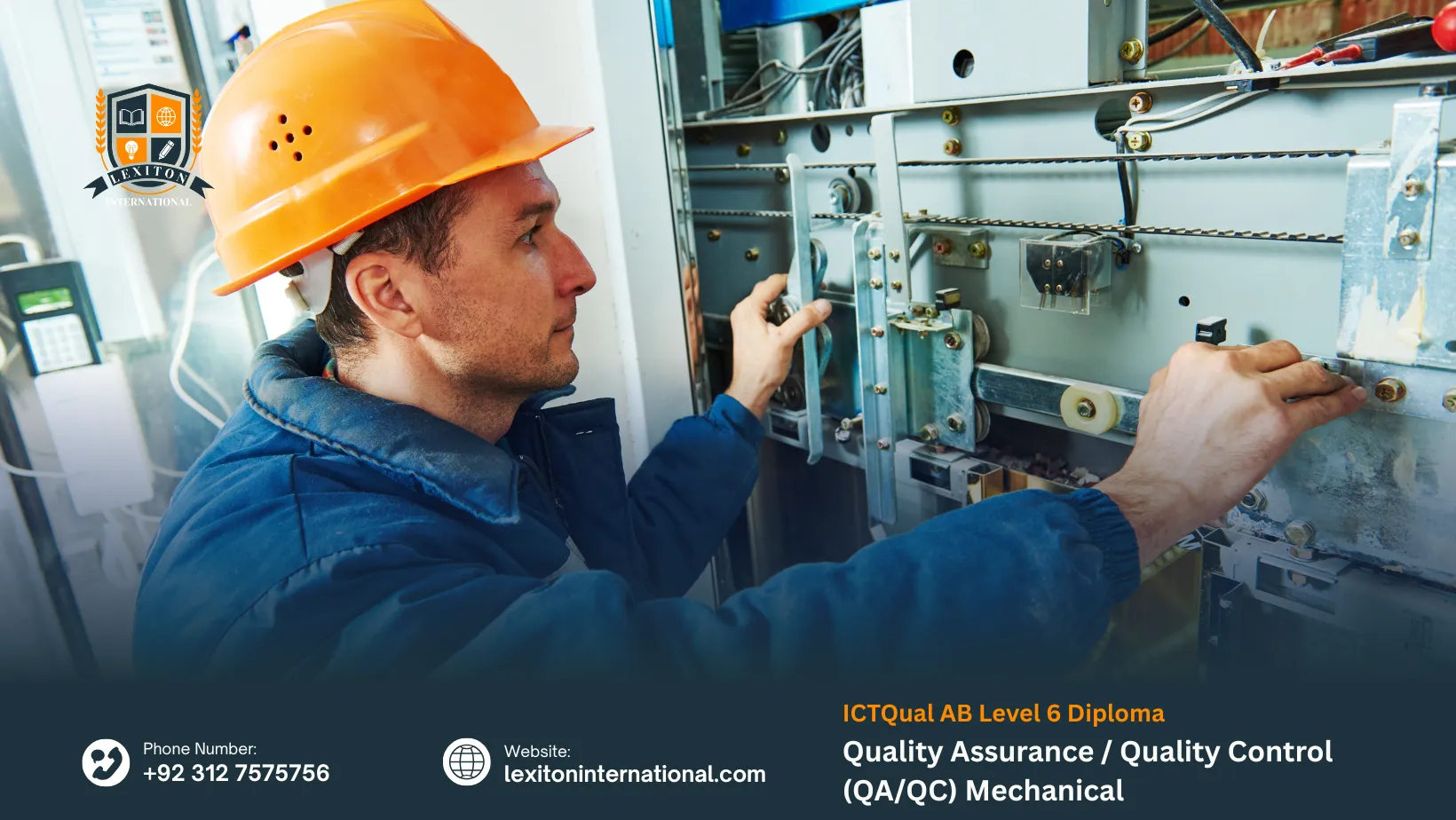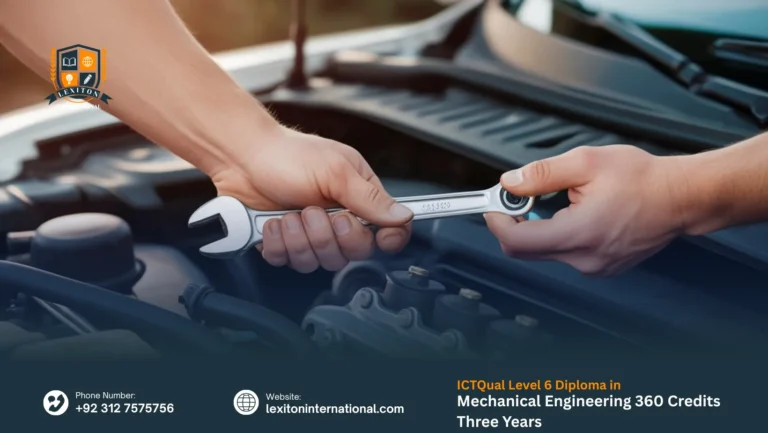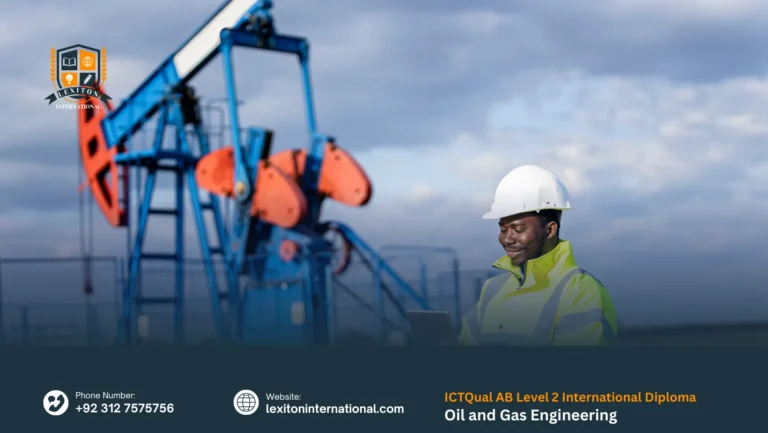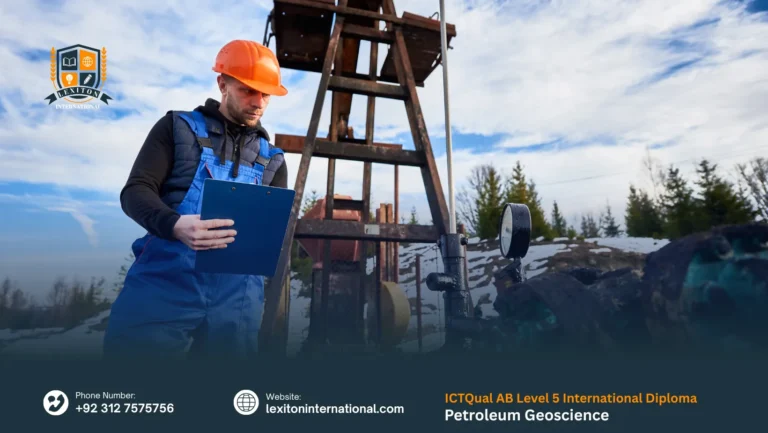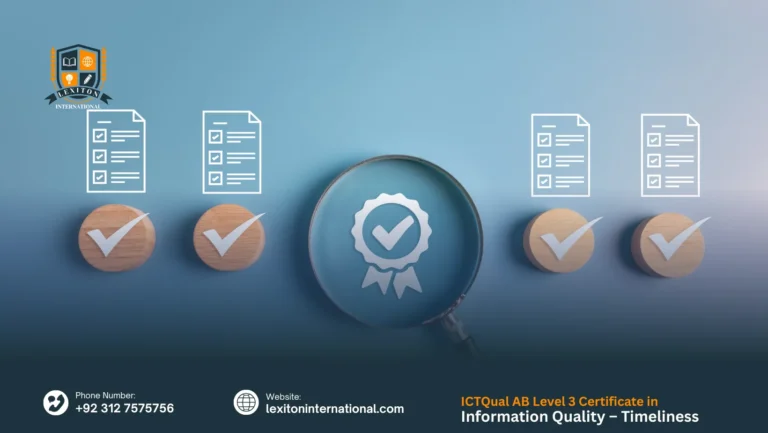The ICTQual AB Level 6 Diploma in Quality Assurance / Quality Control (QA/QC) Mechanical is an advanced professional qualification designed to develop expertise in managing, implementing, and auditing quality systems within mechanical engineering environments. This program focuses on advanced methodologies of QA/QC, enabling learners to oversee inspection processes, ensure compliance with international standards, and enhance the reliability of mechanical components and systems. Participants gain an in-depth understanding of material testing, mechanical inspection procedures, documentation control, and quality planning essential for achieving operational excellence in industrial settings.
Throughout the diploma, learners explore critical topics such as mechanical design verification, welding and fabrication quality control, non-destructive testing (NDT), equipment calibration, and risk-based quality management. The course emphasizes the integration of engineering principles with quality management practices to ensure that all mechanical processes meet strict performance, safety, and reliability requirements. Real-world case studies, project-based assessments, and supervised practical applications help learners develop analytical and problem-solving abilities required for high-level QA/QC roles.
This qualification is ideal for professionals aiming to progress into senior positions such as QA/QC Engineers, Mechanical Inspectors, Quality Managers, or Project Quality Supervisors within manufacturing, oil and gas, construction, and power generation sectors. It also serves as a pathway toward higher academic achievements and specialized certifications in mechanical inspection, industrial quality systems, and engineering management. Graduates of this diploma will be well-equipped to implement and maintain quality assurance strategies that drive continuous improvement and compliance across diverse mechanical operations.
To gain the most from the ICTQual AB Level 6 Diploma in Quality Assurance / Quality Control (QA/QC) Mechanical, learners are expected to meet specific academic and professional entry requirements. These requirements ensure that candidates possess the foundational knowledge and industry experience necessary to engage effectively with advanced QA/QC concepts and mechanical systems.
- Age Requirement: Learners should typically be 21 years or older at the time of enrolment, reflecting the professional and technical maturity required for this advanced-level qualification.
- Educational Background: Applicants are expected to hold a Level 5 Diploma or equivalent qualification in Mechanical Engineering, Industrial Engineering, or a closely related discipline. Candidates with a strong academic foundation in material science, mechanical design, or manufacturing processes are ideally suited for this program.
- Relevant Industry Experience: Individuals with at least 2–3 years of practical experience in mechanical inspection, maintenance, fabrication, production quality control, or project supervision are highly encouraged to apply. Candidates without formal academic qualifications but with substantial professional experience in mechanical QA/QC roles may also be considered on a case-by-case basis.
- English Language Proficiency: As the qualification involves technical documentation and international standards, learners must have adequate English proficiency to understand and communicate complex engineering and quality concepts effectively.
- Career Motivation: Applicants should demonstrate a clear commitment to advancing their careers in mechanical QA/QC, engineering quality management, or industrial inspection, with the goal of achieving professional excellence and leadership in the field.
Mandatory Units
This qualification, the ICTQual AB Level 6 Diploma in Quality Assurance / Quality Control (QA/QC) Mechanical, consists of 6 mandatory units.
Learning outcomes of ICTQual AB Level 6 Diploma in Quality Assurance / Quality Control (QA/QC) Mechanical:
Advanced Mechanical QA/QC Management Systems
- Understand the principles and implementation of advanced quality management systems (QMS) in mechanical engineering environments.
- Evaluate the effectiveness of QA/QC policies, procedures, and documentation systems within industrial operations.
- Develop and manage quality assurance plans, inspection test plans (ITPs), and quality manuals for mechanical projects.
- Integrate quality management tools such as FMEA, Six Sigma, and continuous improvement methodologies.
- Apply risk-based thinking to maintain compliance and improve quality performance in mechanical systems.
Mechanical System Inspection and Testing Techniques
- Apply advanced inspection methods to assess the quality and functionality of mechanical systems and components.
- Utilize both destructive and non-destructive testing (NDT) techniques to verify material and product integrity.
- Conduct mechanical testing including hardness, tensile, impact, and pressure tests following international standards.
- Evaluate inspection results to identify non-conformities and determine corrective actions.
- Develop inspection schedules, reports, and traceability records in alignment with QA/QC requirements.
Statistical Process Control and Data Analysis in Mechanical Engineering
- Apply statistical process control (SPC) techniques to monitor and improve mechanical production processes.
- Use data analysis tools to identify trends, process variations, and potential quality risks.
- Interpret control charts, histograms, and process capability indices to support decision-making.
- Implement data-driven approaches to maintain consistent mechanical product quality.
- Present analytical reports that support quality performance reviews and process optimization.
Mechanical Components, Materials, and Reliability in QA/QC
- Understand the properties, selection, and performance of materials used in mechanical systems.
- Evaluate material quality through mechanical testing, certification review, and supplier audits.
- Analyze the impact of material defects and wear on system reliability and operational safety.
- Apply reliability engineering principles to extend the service life of mechanical components.
- Recommend material and design improvements based on failure analysis and performance data.
Compliance with International Mechanical Standards and Regulations
- Interpret and apply major mechanical standards such as ASME, ASTM, ISO, API, and BS codes.
- Ensure mechanical systems and processes align with global quality and safety requirements.
- Evaluate project documentation for conformity with industry and client specifications.
- Demonstrate understanding of legal and regulatory frameworks governing mechanical quality assurance.
- Implement effective internal audits and compliance verification procedures.
Leadership, Risk Management, and Project Supervision in QA/QC Mechanical
- Demonstrate leadership and team management skills in QA/QC project environments.
- Conduct risk assessments to identify, evaluate, and mitigate mechanical and operational hazards.
- Supervise inspection teams to ensure adherence to project quality plans and deadlines.
- Develop effective communication and reporting strategies for multidisciplinary QA/QC projects.
- Promote a culture of continuous improvement, safety, and accountability within mechanical operations.
The ICTQual AB Level 6 Diploma in Quality Assurance / Quality Control (QA/QC) Mechanical is designed for experienced professionals and advanced learners who aim to develop high-level competence in managing mechanical quality systems, inspection operations, and compliance with global engineering standards. This qualification is ideal for individuals seeking leadership, supervisory, or specialist roles in mechanical QA/QC across diverse industrial sectors.
Mechanical Engineers and QA/QC Specialists
- Professionals involved in the design, inspection, or testing of mechanical systems and components.
- Individuals seeking to strengthen their expertise in quality assurance methodologies and management systems.
- Engineers aiming to integrate quality and reliability principles into project planning and production.
- Candidates preparing for advanced technical or supervisory QA/QC roles within mechanical industries.
- Those aspiring to enhance decision-making and leadership skills in quality-driven environments.
Quality Managers and Project Supervisors
- Professionals responsible for overseeing mechanical project quality documentation and compliance.
- Individuals managing QA/QC teams within manufacturing, oil and gas, or construction environments.
- Supervisors seeking to improve quality coordination between production, engineering, and management departments.
- Personnel aiming to implement and monitor ISO-based quality management systems.
- Those aspiring to lead quality initiatives and ensure operational excellence across mechanical projects.
Inspection and Testing Engineers
- Technicians or engineers performing mechanical inspections, testing, and quality verifications.
- Professionals involved in non-destructive testing (NDT), calibration, and validation of mechanical systems.
- Individuals wishing to upgrade their skills in interpreting inspection data and resolving non-conformities.
- Inspectors seeking a deeper understanding of international standards such as ASME, API, and ASTM.
- Those aiming to progress toward senior inspection, auditing, or mechanical integrity management positions.
Industrial and Manufacturing Professionals
- Engineers and production personnel working in heavy machinery, process industries, or manufacturing facilities.
- Professionals aiming to apply QA/QC principles to improve process reliability and efficiency.
- Individuals responsible for ensuring quality during fabrication, welding, or assembly operations.
- Candidates seeking to lead quality initiatives within supply chain and production environments.
- Those aspiring to bridge technical expertise with strategic quality leadership.
Aspiring Quality Leaders and Consultants
- Experienced QA/QC professionals aiming to transition into management or consultancy roles.
- Individuals seeking to establish independent inspection or quality consulting services.
- Professionals planning to contribute to continuous improvement and standardization projects.
- Learners motivated to gain an internationally recognized qualification in mechanical QA/QC.
- Candidates preparing for further progression to Level 7 or postgraduate studies in Quality or Mechanical Engineering.
Completing the ICTQual AB Level 6 Diploma in Quality Assurance / Quality Control (QA/QC) Mechanical opens a wide range of academic, professional, and career advancement opportunities. Graduates are equipped with the technical expertise, analytical thinking, and leadership skills necessary to progress into higher qualifications, managerial roles, or specialized engineering disciplines across global industries.
Academic Progression Opportunities
- Progress to a Level 7 Diploma in Engineering Management, Quality Management, or Mechanical Engineering.
- Enroll in professional certification programs such as ISO Lead Auditor or Six Sigma Black Belt.
- Gain eligibility for advanced vocational or technical qualifications in reliability and maintenance engineering.
- Strengthen academic credentials for entry into research or academic teaching positions in engineering quality fields.
Professional Career Advancement
- Qualify for senior QA/QC or Quality Management positions within engineering or manufacturing organizations.
- Progress into roles such as Mechanical QA/QC Manager, Senior Quality Engineer, or Inspection Supervisor.
- Advance toward leadership positions in project quality coordination, vendor assessment, or system auditing.
- Take on regional or global quality leadership responsibilities in multinational mechanical projects.
- Use the diploma as a foundation for moving into corporate quality governance and compliance management.
Industry Specialization Pathways
- Enter specialized mechanical industries such as oil and gas, power generation, heavy machinery, or energy systems.
- Focus on niche QA/QC domains such as pressure vessels, piping systems, or mechanical fabrication.
- Gain expertise in high-demand areas like mechanical integrity assessment and maintenance reliability.
- Transition into specialized roles related to industrial inspection, certification, or compliance auditing.
- Apply mechanical QA/QC skills to automation, robotics, and smart manufacturing sectors.
International Employment Prospects
- Enhance employability in global projects across oil refineries, petrochemical plants, and industrial construction.
- Qualify for QA/QC or inspection roles in international EPC (Engineering, Procurement, and Construction) firms.
- Strengthen professional credentials to work under ASME, API, ASTM, and ISO standards abroad.
- Become eligible for quality management opportunities in countries with strong engineering sectors such as the UK, UAE, or Canada.
- Expand potential for consultancy or contract-based QA/QC work in multinational environments.
Entrepreneurial and Consulting Opportunities
- Establish independent QA/QC or inspection service firms catering to mechanical projects.
- Offer consultancy in quality management system implementation and process optimization.
- Develop training and certification programs for mechanical quality professionals.
- Provide third-party inspection and auditing services for industrial and engineering clients.
- Build a professional reputation as a certified mechanical QA/QC consultant or auditor.
Continuous Professional Development (CPD)
- Engage in lifelong learning through workshops, conferences, and professional associations.
- Stay updated with evolving mechanical standards, inspection technologies, and digital QA/QC systems.
- Earn recognition through membership in professional bodies such as ASQ, IQA, or IMechE.
- Develop multidisciplinary skills in project management, health and safety, or reliability engineering.
- Pursue ongoing professional development to maintain global competitiveness and certification renewal.
Curious About This Course?

